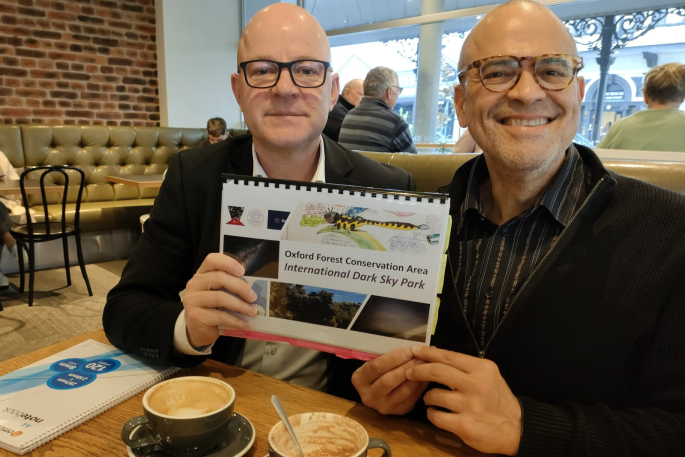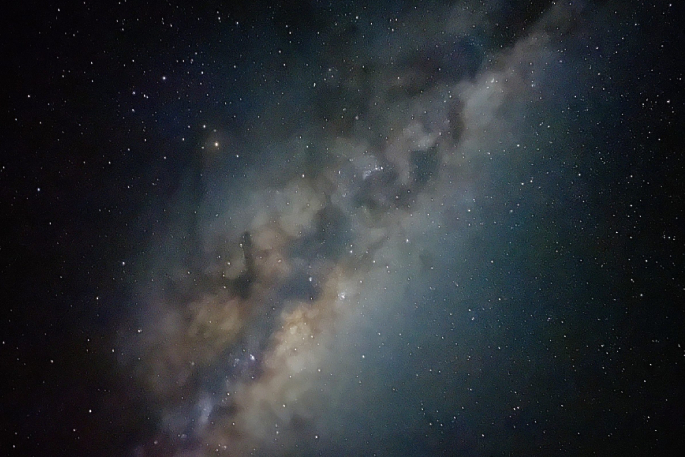Transforming Aotearoa into a dark sky nation could attract stargazing international tourists, creating huge economic benefits, says Tourism Minister Matt Doocey.
The Royal Astronomical Society of New Zealand believes New Zealand could become a dark sky nation, an idea which Doocey says he supports.
To become a dark sky nation the country will need to cut light pollution, such as outdoor lighting, to allow for greater stargazing and astronomy.
Tourism New Zealand research indicated more than 70 per cent of people thinking about visiting New Zealand are interested in stargazing, he says.
The best times for stargazing are during the off-peak and shoulder seasons for tourism, which means protecting New Zealand’s night skies could provide an economic boost when tourist towns were otherwise quiet.
"It is something I am keen to encourage," says Doocey.
"We want to grow tourism because we know it brings jobs to rural New Zealand.
"Tourism is very seasonal, so we need to be looking at how we can market and promote New Zealand during those shoulder and off-peak periods."
The Waimakariri MP says an economic impact report commissioned by Enterprise North Canterbury last year shows a dark sky trail will provide an economic boost in the region.
The report says a dark sky reserve could generate $4.6 million of visitor spending in Waimakariri and create up to 24 jobs.
The Oxford Dark Sky Group obtained dark sky park status in January for the Oxford Forest Conservation Area from the Dark Sky International.
Oxford Dark Sky president Raul Elias-Drago says there is no cost to the group, thanks to support from the community, the Waimakariri District Council, Oxford-Ohoka Community Board and Government agencies such as the Department of Conservation.
The group is now planning to apply for dark sky reserve status, which will incorporate the town of Oxford.
Doocey says the Oxford example shows how communities coming together can achieve economic benefits at little cost.
 Tourism Minister Matt Doocey, left, discusses the Oxford dark sky park with Oxford Dark Sky president Raul Elias-Drago. Photo: David Hill / North Canterbury News.
Tourism Minister Matt Doocey, left, discusses the Oxford dark sky park with Oxford Dark Sky president Raul Elias-Drago. Photo: David Hill / North Canterbury News.
Enterprise North Canterbury has been working with other regional tourism organisations to develop a Canterbury dark sky trail.
The Aoraki Mackenzie International Dark Sky Reserve was established in 2012, while the Kaikōura Dark Sky Trust is about to apply for dark sky sanctuary status and interest is growing in other Canterbury communities.
"I would encourage RTOs to think about whether dark skies should be part of their destination management plans," says Doocey.
"There is real potential for a ground up approach and I would be really supportive of that."
Elias-Drago, who is also the Royal Astronomical Society of New Zealand secretary, said a national approach was needed, perhaps led by the Department of Conservation.
"The Department of Conservation has been very supportive regionally," he says.
"The Rangiora office supported our application and other regional offices have supported other applications, but every time each regional office is doing the same thing.
"If the work was done nationally, we wouldn’t have to replicate the work in every region."
Doocey has accepted an invitation to speak at the New Zealand Starlight Conference in Tekapo in October, which is organised by RASNZ and the Aoraki Mackenzie International Dark Sky Reserve board.
"We are hoping to use the conference as a springboard to advance the discussion around becoming a dark sky nation," says Elias-Drago.
Niue became the world’s first whole country to become an International dark sky nation in 2020.
LDR is local body journalism co-funded by RNZ and NZ On Air.




0 comments
Leave a Comment
You must be logged in to make a comment.